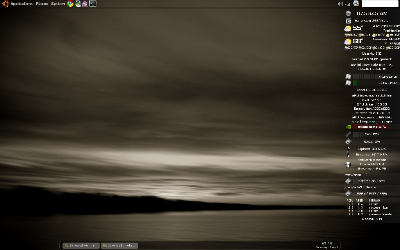
What if I were to tell you that the world is flat, the Earth is the center of the solar system, Newtonian physics is in fact the Grand Unified Theory, or global warming is 100% due to man? I suspect that you might have me sent away for a long holiday in a padded room without a view. As we transition more deeply into the Information Age, our perceptions of what is valid stands a greater chance of becoming distorted. Dissemination of information occurs at a rate staggering to the human mind. Because of this, being able to discern what is valid information, and what is not, is an important developmental requirement of us all if we expect to mitigate informational extinction.
With the prevalence of social networks and wholesale liberal online media outlets, campaigns of agenda promotion are commonplace. Relative to the former, I am reminded of the childhood game where one child whispers a secret to the his/her friend who does the same to another friend; continuing down the line until the last child whispers the secret to the secret's originator. Invariably, the secret has been distorted. This is how valid information can be distorted within the context of social networks.
No longer does one have to read the daily news, that is delivered each morning in hardcopy format, to find out what happened the day before. No longer does one have to rely on the evening television news being beamed into their skulls to find out what is going on in the world. Each subsequent evolution of news delivery increases the rate at which an individual is able to receive their daily injection of blood, sweat, and tears. As Internet enabled devices proliferate, news is delivered as quickly as it can be prepped for human consumption.
One of the problems associated with our online news access, for both social networks and various media sources, is not the rate at which it is received. Instead, the problem is with the promotion of agendas that may or may not coincide with the overall belief system of the individuals being force fed this digital detritus.
Convincing evidence that promotes and supports the reported information comes in the form of fancy graphs, charts, so-called expert narrative, and statistics. The way I see this is that statistics can be made to support any agenda. If you do not believe this, I would suggest that you do a little research into the various Microsoft sponsored studies associated with this or that.
I have been around long enough to remember when eggs were considered part of a healthy diet. Then some study showed that they were bad for you. Then they were good for you. Information and understanding changes. What is the saying "The only constant in the universe is change"? Additionally, often what is solicited as fact by the expert is simply opinion.
A number of years ago I was told that because of the rate at which new information and/or technology is being generated, I would know less of the total information available upon completing my undergraduate degree than when I began my secondary education. This is not difficult to believe. After all, I do remember when Pluto was a planet. There is simply no way to know everything, even though there are those who would have you believe otherwise.
I understand that the pace at which change takes place is not what it once was. Obviously the pace at which the world turns, metaphorically, is significantly greater than 10, 15, or 20 years ago. Even so, what it boils down to is that we need to take some time to think. The following is a list of some things to consider when evaluating information validity, and not to be considered all inclusive:
1. Does the presented information make sense in a logical world?
2. Is the information fact or opinion based?
3. Ask the question, "What information am I missing that is necessary to make an informed decision".
4. Do not propagate information, the validity of which is uncertain.
5. Above all else, do not simply believe something just because I said so. Do not just question authority, question everything.
If it turns out that the information in question is indigestible for whatever reason, call "shenanigans" on the information promoter; individual, group, organization, or otherwise. A fact is simply a piece of information that is assumed valid until proved otherwise. This is a paraphrase of something I remember reading, the source of which I cannot recall.
And with that, I am off to see the wizard...



